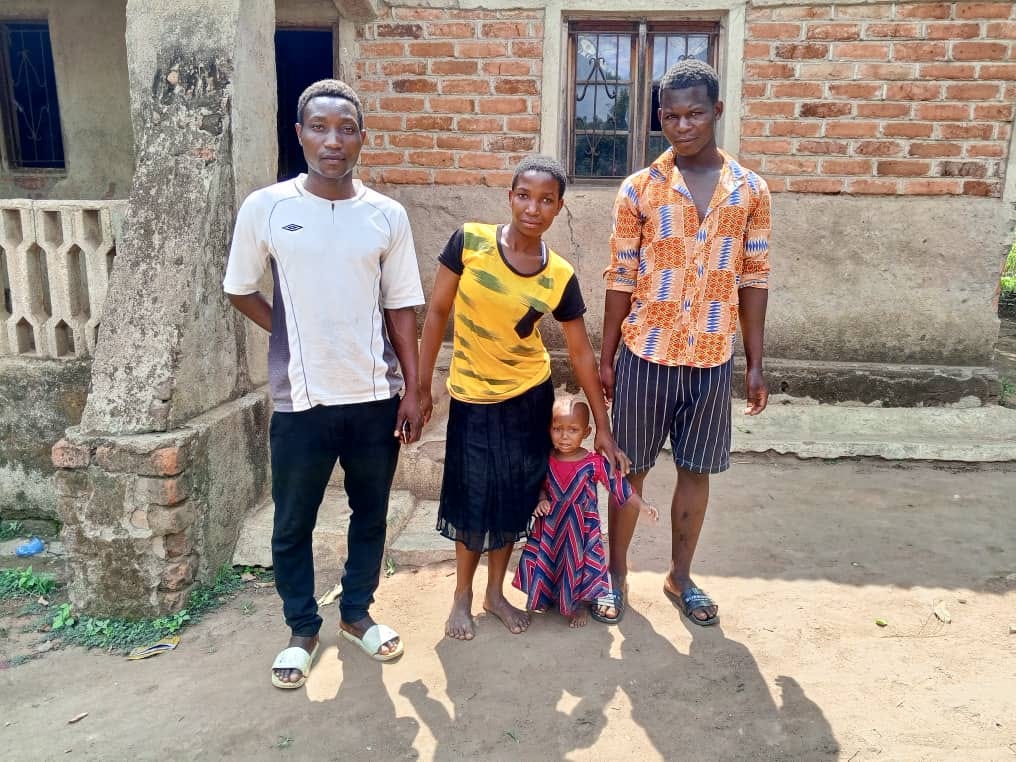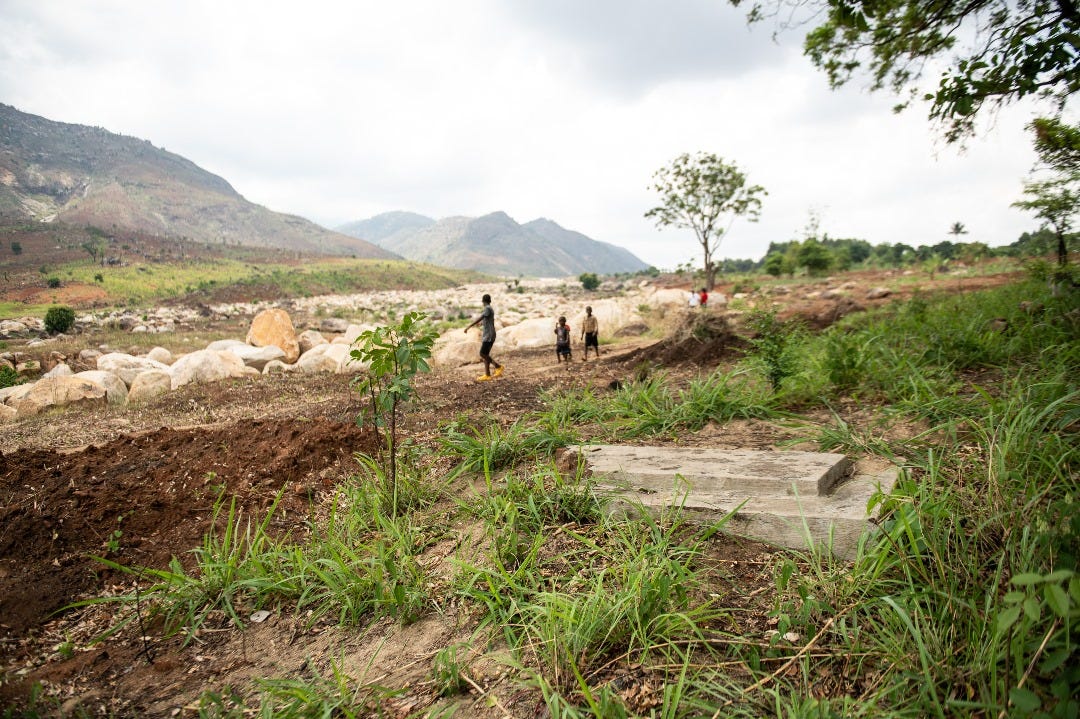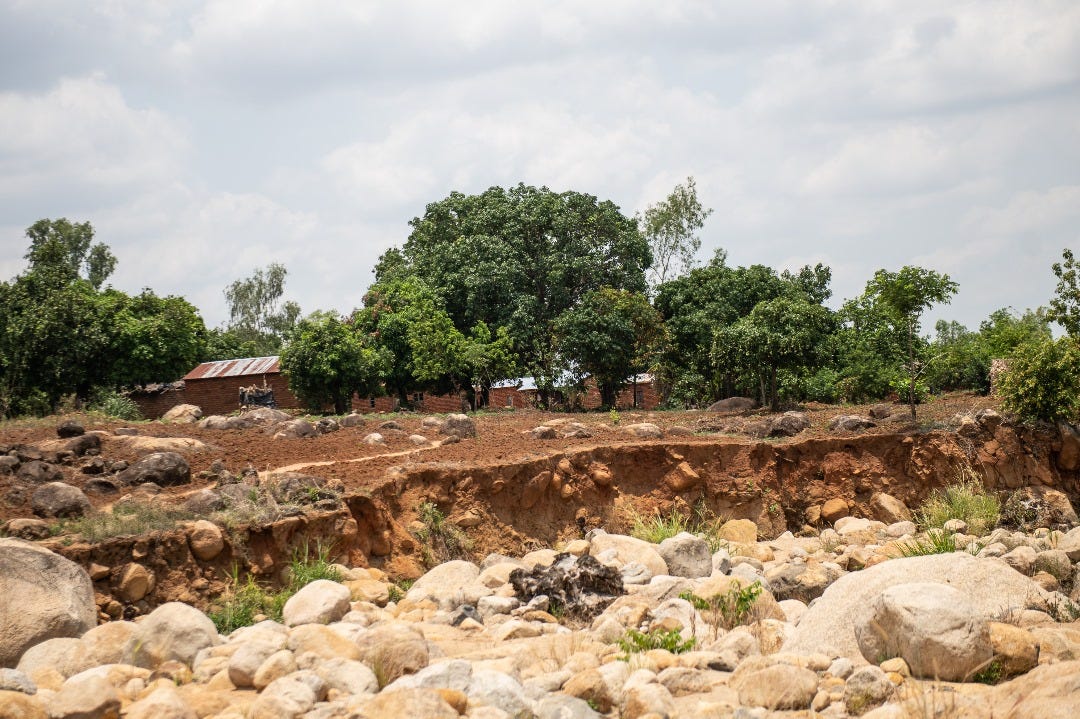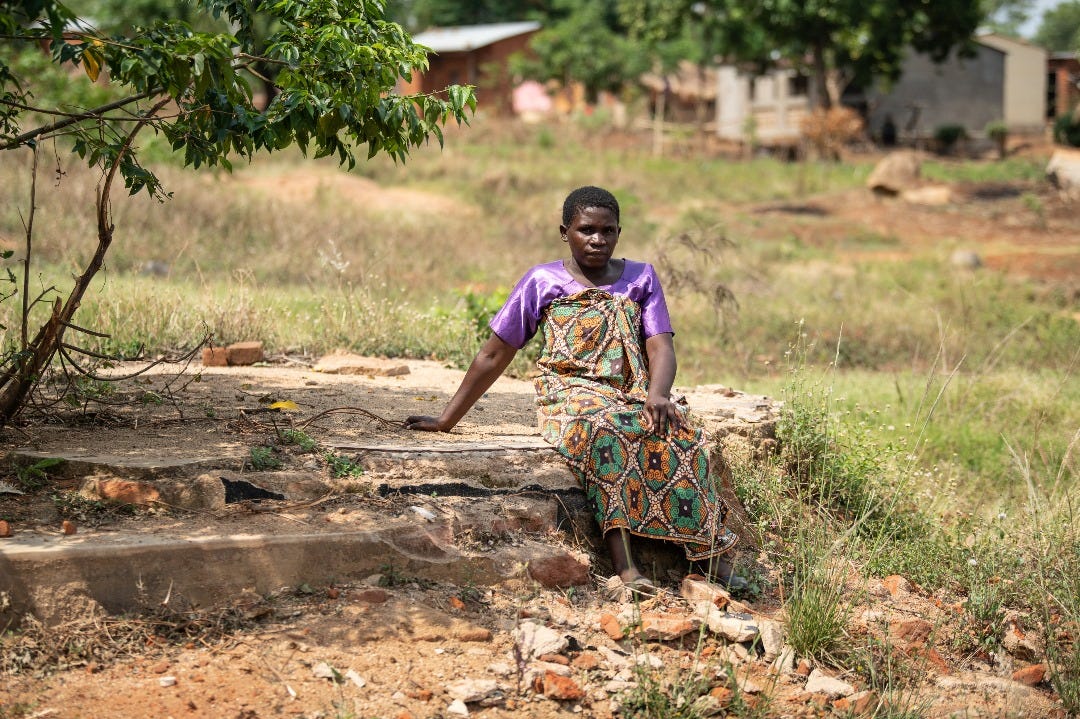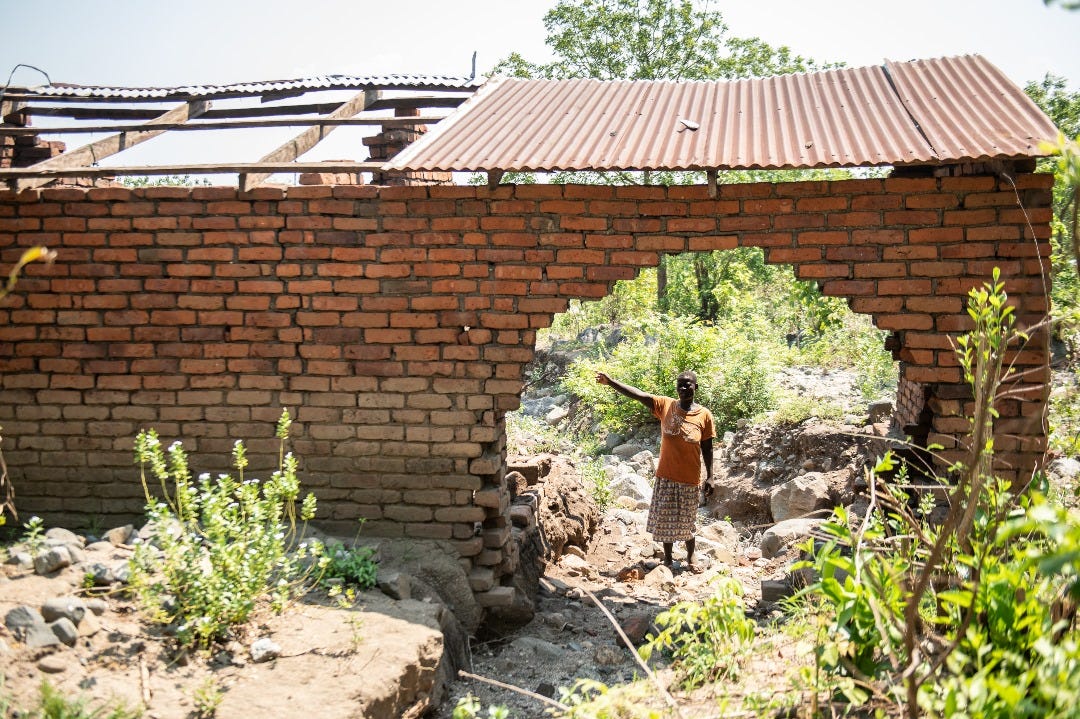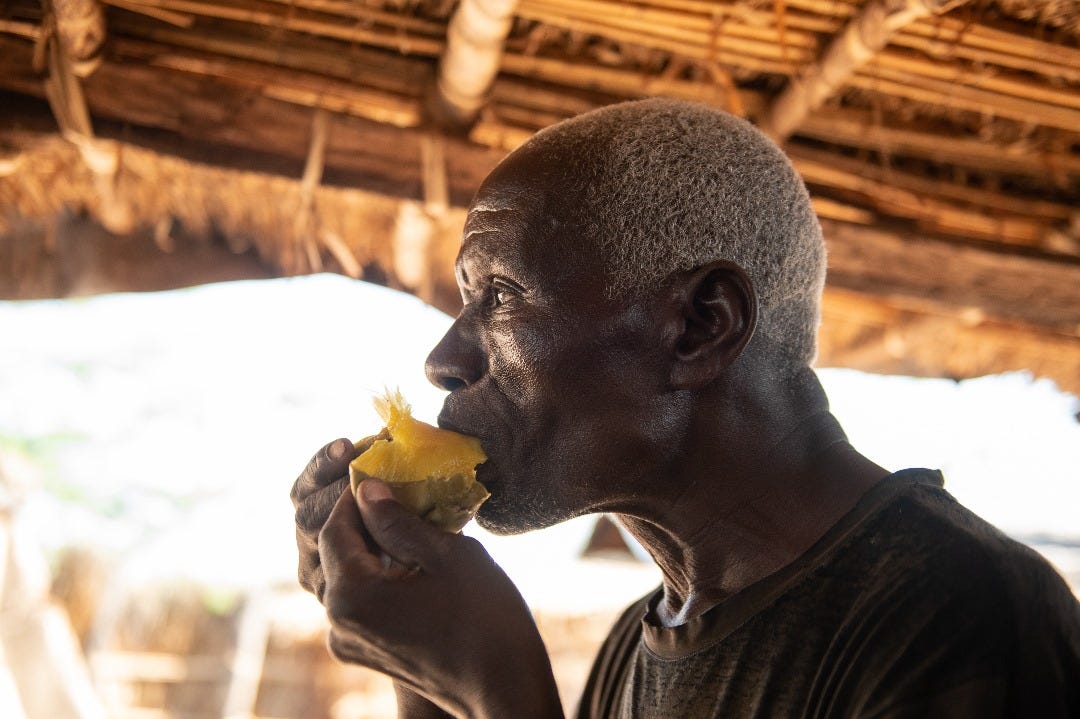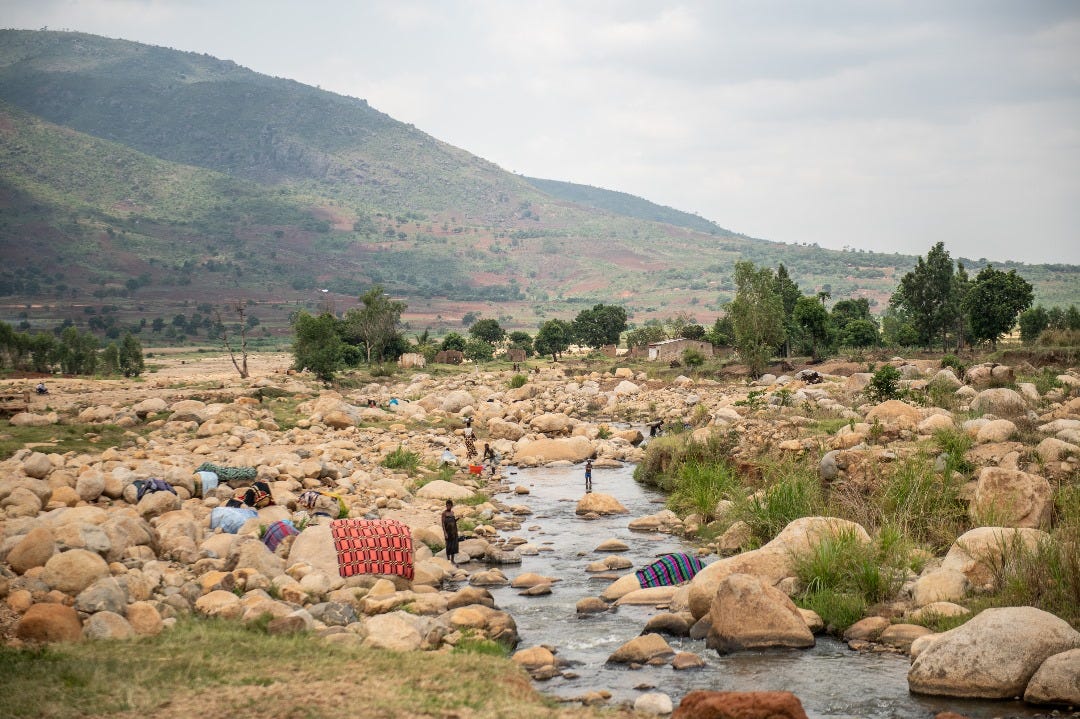Months of Suffering: Cyclone Freddy's Lingering Impact on Malawi
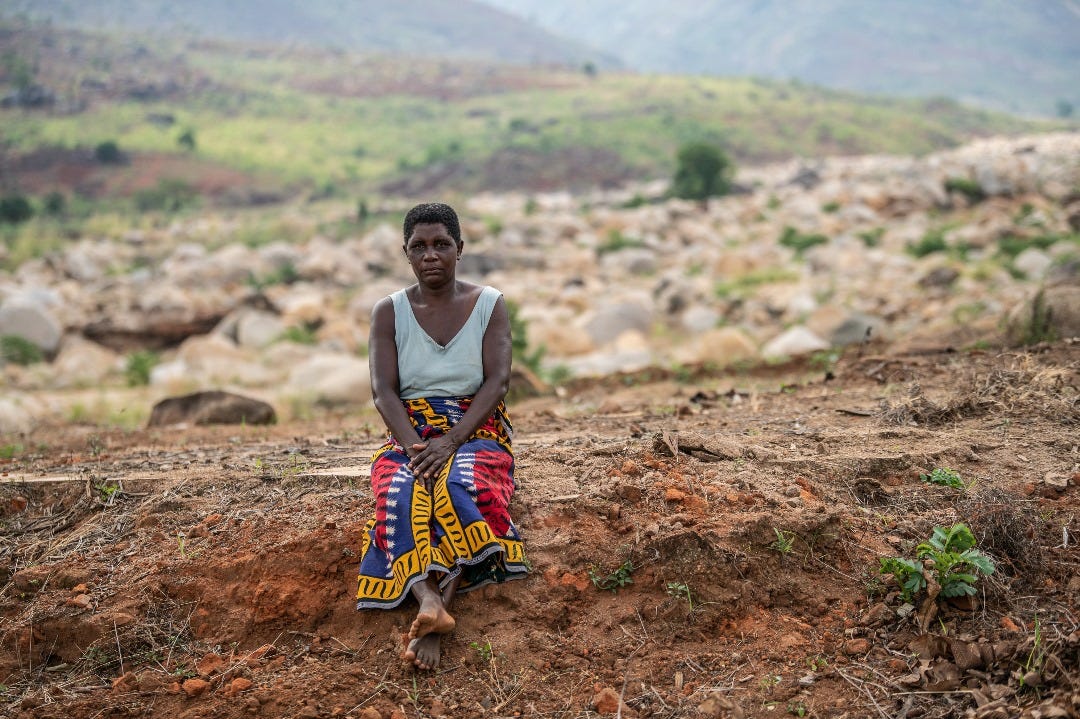
LILONGWE, Malawi – Months after Cyclone Freddy devastated southern Malawi, leaving hundreds dead and countless communities decimated, the trauma and rebuilding efforts continue for vulnerable villages like Ndala in Mulanje, and Kamoga, and Mpama in Chikwawa.
Residents describe the overwhelming floodwaters, lost lives, and decimated infrastructure as the Malawian government struggles to provide adequate aid and prepare for the growing climate threats that have trapped the country in a cycle of destruction, writes Winston Mwale.
Ndala Village, Mulanje
"Take care of your siblings, my son; I don't think I will make it."
These were the last words of Mikayesi Edwin's mother before she died just 30 minutes later, a victim of Cyclone Freddy's devastating wrath.
28-year-old Edwin became the sole provider for his two remaining siblings in Ndala Village, Traditional Authority Njema, Mulanje.
One sister, driven by the hardship, had already left home, become pregnant, and started her own family.
Their father had already died before the cyclone.
Edwin vividly recalls the night of March 13, 2023. Unlike anything he'd ever heard, an unfamiliar noise drew him outside.
That night, Cyclone Freddy, the longest-lasting tropical cyclone on record, unleashed its fury on southern Malawi.
What Edwin witnessed defied description — a towering wall of muddy water bearing down on his village in Mulanje district.
"There was noise coming from outside. The kind of noise we have never heard before," Edwin recalls, his voice steady but his eyes distant.
"It was different from what we know, more like porridge."
The churning deluge, carrying a deadly cargo of uprooted trees and boulders, rose more than 50 metres.
As the water swept through Ndala Village, Edwin found himself fighting for survival alongside his neighbours.
"We were swept away, and there was nothing we could do because the force was too much," he says.
"But because the water was going very fast, an opportunity came."
That opportunity was a tree, which Edwin managed to grasp, saving himself from the raging torrent.
In the aftermath of the cyclone, which dumped six months' worth of rain in just six days across southern Malawi, Edwin's family was scattered.
When they finally reunited in unfamiliar surroundings, his mother was gravely ill.
She said this to Edwin: "Take care of your siblings, my son; I don't think I will make it."
Within 30 minutes of entrusting her children to Edwin's care, she passed away, leaving him the sole provider for his two younger siblings.
Today, months after Cyclone Freddy claimed 679 lives, displaced 659,278 people, left 2,178 injured and 537 missing across Malawi, Edwin's daily life is a testament to both struggle and resilience.
He moves between construction sites, offering his labour to earn enough for his family's survival.
"If I find people working, maybe building a house, I will go and ask if I can be carrying mud for the builders to use," he explains.
"Whatever I get from that job, I will use to feed."
The income barely covers their monthly rent of K5,000, and some nights, the family goes to bed hungry.
Yet Edwin perseveres, driven by his mother's last wish and his determination to provide a better future for his siblings.
Edwin is determined to prevent his remaining siblings from facing the same fate.
The landscape of Ndala Village bears witness to Cyclone Freddy's devastating impact.
Where homes once stood, a rocky field stretches out, punctuated by a makeshift cemetery.
Children play among the ruins, their laughter a stark contrast to the solemnity of their surroundings.
Edwin, like many survivors, sees the disaster as a consequence of environmental neglect.
The rampant deforestation in the region, he believes, amplified the cyclone's destructive power.
His perspective reflects a growing awareness of the connection between environmental degradation and natural disasters in Malawi, which has been hit by five cyclones since 2019.
Speaking on behalf of fellow villagers, Wilson Cement, Ndala’s head of risk management, surveys the scene with cold anger. He remembers the five days of relentless rain that followed the initial onslaught.
“No one came to help us,” he said.
“We had to manage as best we could, but we had nothing.”
The lack of immediate assistance, coupled with destroyed infrastructure, made access to healthcare nearly impossible.
"We don’t have access to drinking water anymore, and, because of that, we have had multiple cases of cholera and diarrhoea,” Cement revealed.
“We used to have a mobile clinic, but it hasn’t come back since Freddy." Villagers needing medical attention are forced to make a perilous 12-kilometre journey to the Mozambique border.
Sosten Fashion, another resident of Ndala, recounted a harrowing tale of loss and survival. He said that as the floodwaters engulfed the village, Fashion found himself desperately trying to save his two-year-old grand-daughter.
“I injured myself trying to save her as she was being carried away by the water," he said, his voice cracking.
"I didn’t succeed. I was swept away too, but a tree caught me.”
The body of Fashion's granddaughter was found the next day. He, along with his wife and two injured children, were taken to the hospital three days later.
The situation in Ndala is a stark microcosm of the larger crisis unfolding in Malawi.
Cyclone Freddy left a profound impact on the Mulanje district. The cyclone affected a staggering 362,135 individuals, representing 53% of the total population of Mulanje.
The severe weather system unleashed mudslides and debris flows that devastated numerous villages, resulting in extensive damage to homes, property, and crops.
Among those affected, 131,830 people were displaced, marking Mulanje as the district with the highest number of displaced individuals.
This figure surpassed that of neighbouring Phalombe, which reported 117,801 displaced residents.
The cyclone's toll was not only measured in displacement but also in loss of life; tragically, it claimed the lives of 151 individuals in the Mulanje district.
The community still face a long road to recovery as they navigated the aftermath of this natural disaster.
Mpama, Chikwawa
Away from Mulanje, in Chikwawa district, Edina Friton shared a similar story of loss, after watching her home crumble under the force of Cyclone Freddy.
“All I lost were my animals—five goats and ten chickens—and all my cooking utensils too,” Friton said, standing beside the wreckage of her home.
“All that is left of my home are a few orange bricks and a tin roof.” Watson Masiya, another victim, echoed Friton’s despair, pointing to a lone flower blooming in a rocky field where his house once stood.
“I lost my animals too, and also two bicycles that we had bought to help our children get to school," he said. "Now they have to walk five kilometres.”
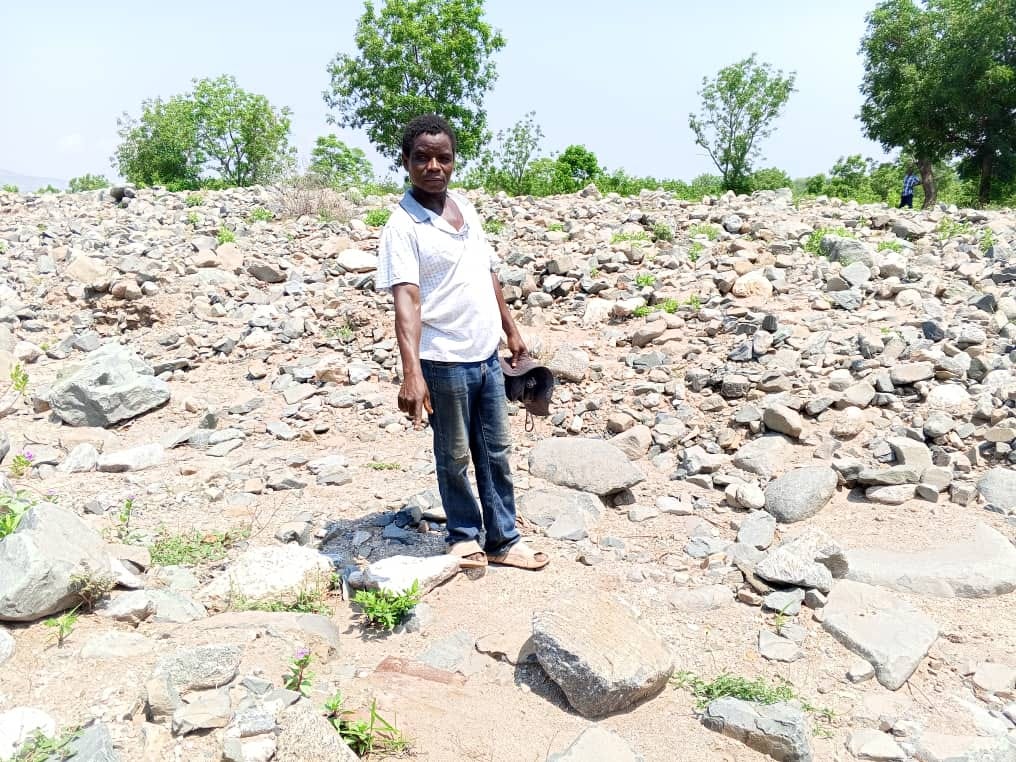
Friton and Masiya, fortunate enough to own land at the foot of Mpama, managed to rebuild their homes using salvaged wood.
Others, less fortunate, now reside in a new village constructed by the government for those displaced by the cyclone.
But even for those who have found shelter, the struggle continues. Floodwaters rendered their fields unusable, wiping out their livelihoods and leaving many, like Masiya, reliant on handouts and food aid.
Kamoga, Chikwawa
The sense of despair is palpable across affected communities.
In the village of Kamoga in Chikwawa district, hunger has become a constant companion. After Cyclone Freddy and subsequent flooding from the Shire River, residents have been unable to cultivate their farmlands for two seasons, leaving them with no harvest.
Their only sustenance comes from cooked mangoes, a stopgap measure that can hardly provide the necessary nutrition.
Desperate times have pushed some to risk their lives, venturing into the crocodile-infested Shire River in search of “nyika,” water lily, an edible water plant.
Charles Jusa, a 35-year-old survivor of a crocodile attack, bears the scars of his struggle.
He was attacked while searching for mangoes in the submerged farmlands. "I was lucky to survive," he said, revealing the deep scar on his calf.
Sadly, four other boys from the village lost their lives to crocodiles in similar incidents in the two years before Jusa's encounter.
Malawi's government grapples with recurring disasters
The Malawian government, reeling under the weight of successive disasters, is trying to adapt. The country has been hit by five hurricanes since 2019, leaving communities trapped in a cycle of destruction and reconstruction.
Madalitso Mwale, from the Malawian department for disaster management (Dodma), acknowledges the growing threat.
"In the past 10 years, we have seen that more and more weather disasters have affected our country, and now they are also hitting areas that used to be spared,” he said.
“It’s a clear sign of climate imbalance...We can no longer just wait for the next catastrophe, rebuild and then see everything destroyed again.”
The government has revised its Disaster Risk Management law to designate and evacuate high-risk areas.
The plight of Malawian villages like Ndala and Kamoga serves as a stark reminder of the human cost of climate change.
It underlines the urgency for immediate action, not just in terms of disaster response but also in addressing the systemic issues that leave vulnerable communities disproportionately affected by climate-related events.




